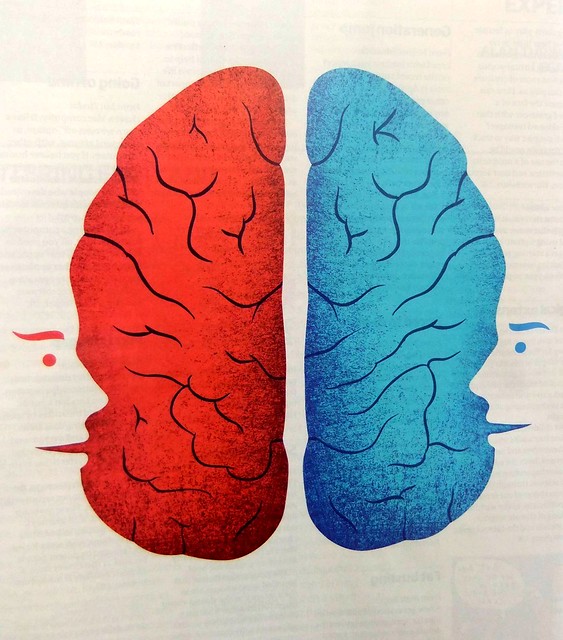
In the quest to be more reasonable, I've long thought that one of the most difficult challenges involves remembering that none of us can directly change someone else's mind or cause someone else to feel a certain way. No, I am not claiming that persuasion never works. That would be absurd. And no, I'm not claiming that our behavior has no impact on others' feelings or thoughts. That would be even more absurd. What I am suggesting is that while we can help others change their minds and attempt to have an impact on others' feelings through our words or behavior, there are limits to what we can accomplish.
I recently saw someone on Facebook saying that we should "Make all of our children feel valued and needed..." I thought this was a nice sentiment. It would be great if more people, both children and adults, felt valued and needed. At the same time, I recognize that it is not within my power to make anyone else feel this way. I can treat others well, and I can communicate to others that I value and/or need them. But I recognize that this will not necessarily lead them to feel valued and needed, especially if others treat them differently. The best I can do (i.e., treat others well and communicate how I feel about them) may still be insufficient to over-ride a pattern of mistreatment by others.
As for changing minds, what atheist hasn't felt frustrated at times by his or her inability to talk a religious believer out of his or her religious beliefs? As helpful as we can be in encouraging and supporting the process of questioning one's beliefs, we cannot do it for someone else. We have almost no direct influence on what someone else believes. When it comes to something as important to many people as religious belief, it should be obvious that this is something only the believer can change. We can help, but we cannot do this for someone else.
Some people have taken some version of what I am saying here and twisted it into an excuse to give up on others (e.g., "There is no point trying to reason with a religious believer") or even to treat others poorly (e.g., "I'm not responsible for your feelings, so I'll treat you however I like"). This is unfortunate. Through our words and behavior, we can help to create conditions that facilitate the changing of minds and the experience of positive feelings. While we cannot directly change minds or provoke the exact sort of emotional reaction we seek, this should never be an excuse to give up on others or to treat them poorly.
When I was a religious believer, nobody could have talked me out of what I believed. But once I began to question my beliefs, encountering others with different views was indeed helpful. They did not directly change my mind, but they certainly contributed to the process of it gradually changing. And throughout this process, there wasn't much anybody could have done to make me feel great about what I was going through. Still, what little support I encountered did make a difference in how I felt at the time.
In this age of near-constant social media outrage, promoting reason, freethought, and civil discourse often seems futile. On the bad days, I'd compare it to trying to empty an ocean using a teaspoon during a thunderstorm. But even this is a lousy excuse for giving up or treating others poorly. I suspect that each of us has a greater cumulative impact than we realize. If we're serious about wanting to improve our world, we've got to be the sort of people we wish there were more of. By starting with ourselves and doing what we can to be more reasonable, civil, and even kind to others, we are making the changing of minds more likely.